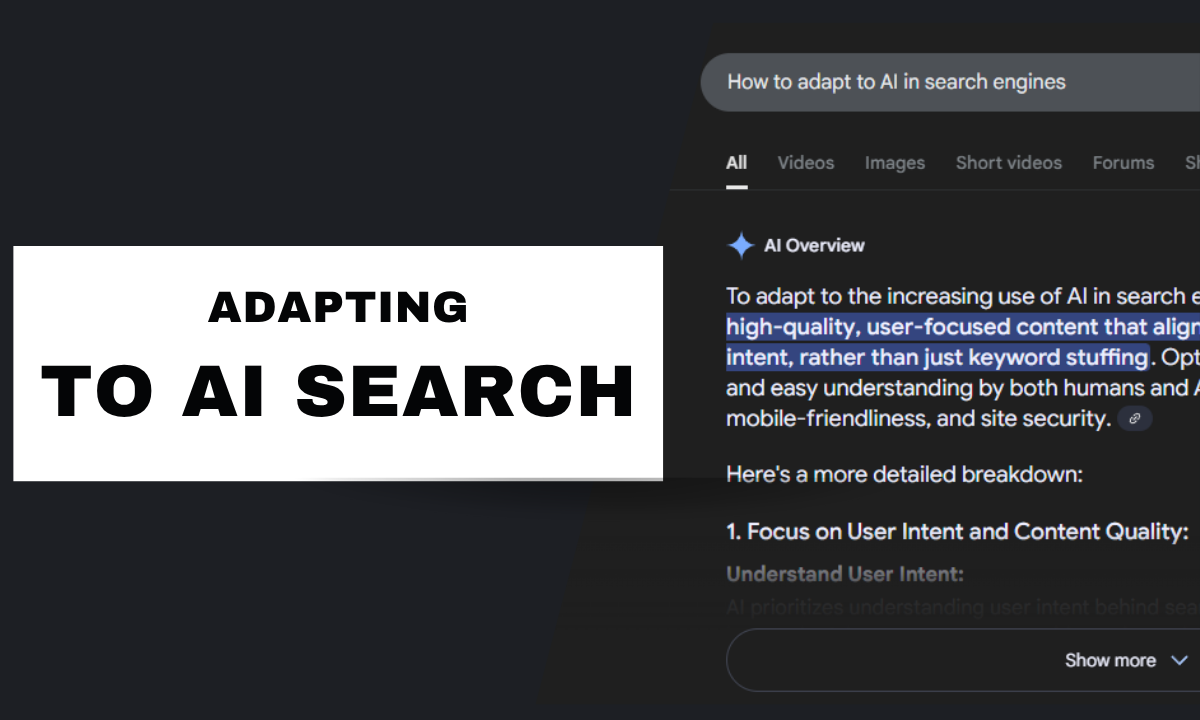The ground beneath the world of digital marketing is shifting. For years, the goal was simple: rank number one on Google. But what happens when the search engine answers the user’s question directly, making a click to your website unnecessary? Welcome to the new world of AI-powered search.
Search engines have quickly evolved into answer engines. Features like Google’s AI Overviews are designed to provide comprehensive, AI-generated summaries at the very top of the results page. While this is great for users, it poses a significant challenge to web masters who face major declines in web traffic.
The Incredible Shrinking Click-Through Rate
The data paints a clear picture. The era of zero-click searches is expanding. A Forbes article highlights a startling statistic: roughly 60% of searches now yield no clicks at all, as AI satisfies the query directly on the results page.
Further studies quantify the impact on click-through rates (CTR). Search Engine Land, citing research from SEO platform Ahrefs, reported a 34.5% drop in CTR for the #1 position when an AI Overview is present. Another study from Amsive found an average CTR drop of 15.5%, with non-branded, informational queries being hit the hardest.
This isn’t a minor algorithm tweak; it’s a fundamental change in how users interact with information. So, how can businesses adapt and even thrive in this new landscape?
Adapting Your Strategy for an AI-First Future
While the challenge is real, so is the opportunity. The focus must shift from simply chasing rankings to becoming an indispensable source of authority and value. Here are actionable strategies to adapt.
1. Double Down on True Expertise
If an AI can summarize basic information, your content must go deeper. Focus on creating content that offers what an AI cannot easily replicate:
- Proprietary Data: Conduct your own research, surveys, and case studies.
- Unique Perspectives: Offer expert opinions and analysis that go beyond surface-level explanations.
- In-Depth Case Studies: Showcase real-world results and detailed processes.
The goal is to create content so valuable that AI models will want to cite it as a source, and users will be compelled to click through for the full story. Being cited by an AI model as a source could very well become the new “backlink” of the modern era.
2. Master Conversational, Intent-Based SEO
Think less about rigid keywords and more about the questions your audience is actually asking. Optimizing your content for long-tail, conversational queries could become key.
As noted in a Forbes Business Council article, changing your SEO approach to go beyond keywords and account for user intent is crucial. Create comprehensive pages that answer a primary question and then anticipate and answer the follow-up questions a user might have.
3. Give AI a Roadmap with Structured Data
Structured data (or schema markup) is a vocabulary that you add to your website’s HTML to help search engines better understand your content. As Bounteous points out, schema is exactly what AI Overviews are looking for to find the best answer.
By implementing schema for products, reviews, events, articles, and FAQs, you provide a clear roadmap for AI, increasing the likelihood that your content will be featured and correctly interpreted.
4. Build a Brand, Not Just a Website
If direct search traffic is declining, you need to build destinations that users seek out directly. This means investing in:
- A strong social media presence.
- An engaging email newsletter.
- A complete and optimized Google Business Profile.
- Active participation in industry communities and forums.
The objective is to build a brand that is recognized as the main authority in your niche, encouraging direct traffic that is not reliant on search engine whims.
The Silver Lining: Higher-Quality Traffic
There is an upside to this disruption. While the quantity of traffic may decrease, the quality of the visitors who do click through is may be higher. These users have had their initial questions answered by the AI and are now further along in their journey, demonstrating a higher intent to purchase, subscribe, or engage.
The Future is Adaptation
The rise of AI in search is not the end of SEO, but it is a call to evolve. By creating genuinely expert content, understanding user intent, leveraging technical advantages like structured data, and building a multi-platform brand, businesses can not only survive but find new avenues for success in this AI-first world.
